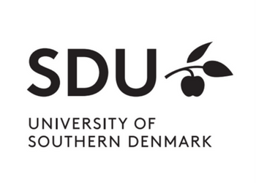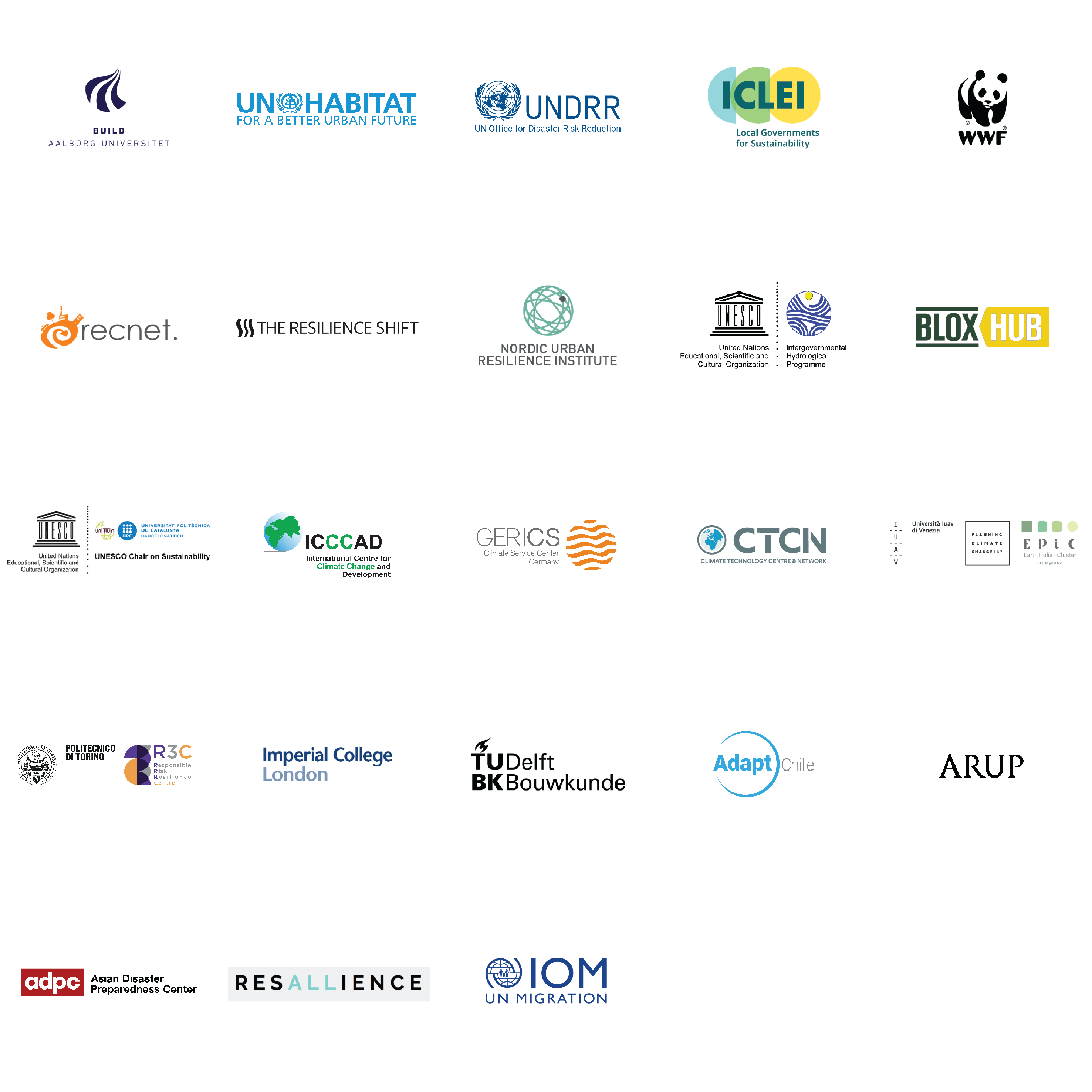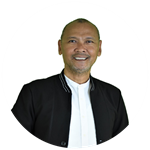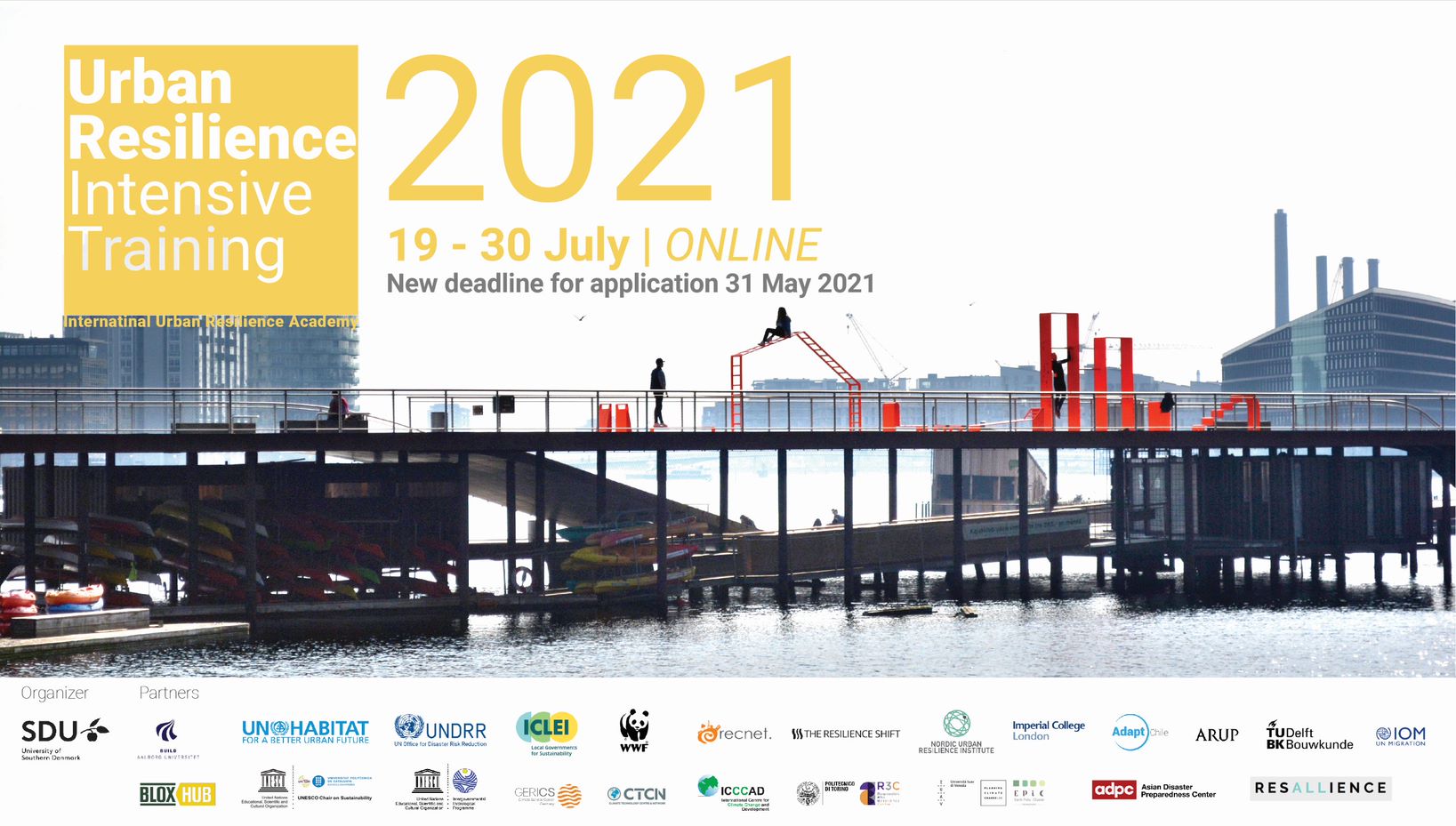Urban Resilience Intensive Training 2021
The Urban Resilience Intensive Training 2021 brings together policymakers, practitioners and researchers for two intensive weeks (online), 19th – 30th of July 2021. The training aims at expanding the participants' knowledge on policies, tools, strategic and action planning for resilient urban transition, responding to the need for systemic change in tackling global challenges, for a just and green transition, with a specific focus on COVID-19 recovery and climate change interplay.
The training brings together transdisciplinary knowledge and perspectives on urban resilience from science, policy, and practice. The training builds the necessary skills and competencies to respond a systemic transformation to tackle global challenges relevant for the Global South and North. Through a system thinking approach, the program focuses specifically on core topics such as: resilience analysis and profiling, future scenarios, strategic and action planning, as well as on specific topics such as ecosystem services, multi-level governance, nature-based solutions, stakeholders’ analysis and participation.
As part of the programme, the participants are welcome to join the urban resilience community of practice, a vibrant global network of professionals that alumni have initiated from the 2019 and 2020 training programmes. The community of practice aims to support peer learning and further collaboration.
Read & download the call for participation here
See the 2020 edition of the training here and the report with results here
Urban Resilience Intensive Training 2021
Today over 50% of the world population lives in urban areas, and cities account for 60-80% of global energy consumption and the same level of greenhouse gases emissions, producing 50% of global waste, consuming 75% of natural resources and producing 80% of global GDP.
Cities and their populations are vulnerable and increasingly exposed to rapid and slow on-setting climate and environmental disasters, which frequency and intensity are growing exponentially. Yet, cities are also major centres of economic activity, social life and culture, innovation and knowledge-creation.
Urban resilience is instrumental in addressing both causes and effects of these major global challenges, re-thinking how cities are designed, planned and managed, and fostering innovation. The scientific research on urban resilience has been exponentially growing in the last decade, parallelly a growing number of cities worldwide started developing resilience-related plans and actions, following the recommendations and prescriptions national and international policies, as: Sustainable Development Goals, Paris Agreement, New Urban Agenda and Sendai Framework for Disaster Risk Reduction.
The key challenge for urban resilience is to co-develop and harmonize scientific and practice-led knowledge to support informed and science-based decision and policymaking, to enable our cities to evolve and innovate.
COVID-19 is the first global crisis that affected our cities worldwide; it gives us the opportunity to analyse how cities can respond and adapt to tackle all challenges of the pandemic. Cities, both in the Global South and North, will need to re-think how they are designed, planned, managed and lived. However, many lessons can already be distilled and can be used to strengthen the adaptive capacities of cities to face multiple and even concurrent global crises.
The training builds the core skills and competencies for urban resilient transition, including fundaments of urban resilience in research, climate science, international and national policies, and resilience in action. The participants will also acquire core competencies on system thinking, system dynamic, transition theory and transformative strategies/actions.
The training adopts a process design methodology, through which the participants will learn about the use of methods for system and stakeholders’ analysis, future scenarios (forecasting, visioning and backcasting), strategic and action planning.
The training is funded on problem-based learning and the participants, divided into small groups, will respond to a specific challenge, applying specific tools and methods through a system thinking approach.
This year's challenge is focusing on just and green transition in the frame of COVID-19 recovery and climate change and how to enhance urban resilience through transformative strategies and actions.
The training will also focus on key cross-sectoral issues, such as: multi-level governance, nature-based solutions, finance, appropriate technology, participatory processes and stakeholder's involvement, generation of co-benefits, urban metabolism, circular economy.
The training is highly participatory and designed for applied learning, aiming to foster peer-to-peer learning among policymakers, practitioners, and scientists, including both participants and lecturers/tutors. The training includes live and pre-recorded lectures delivered by recognized professionals from our partner organizations, group work and social session.
The participants will develop their knowledge on:
- The basis of urban resilience and global challenges science, and research development in different disciplinary contexts.
- International policies (Sustainable Development Goals, Paris Agreement, New Urban Agenda and Sendai Framework for Disaster Risk Reduction).
- Urban resilience practices with specific case studies from cities worldwide, including strategic plans, action plans, and technological solutions.
- Cross-sectorial and thematic issues.
The participants will develop competencies based on system thinking through a process design methodology for urban resilience, including:
- System mapping & stakeholders’ analysis,
- Analysing current and future urban trends and drivers, at local and global level,
- Future scenarios methods: visioning and backcasting,
- Strategic and action planning.
Urban Resilience Intensive Training 2021 is targeted at middle and senior practitioners, scientists, and researchers with different disciplinary backgrounds, including engineering, architecture, planning, environmental, economic and social sciences.
Practitioners from the private and public sectors, including also non-profit organizations.
Policymakers from national and subnational governments and from international and intergovernmental organizations.
Scientists and Researchers from universities and research organizations, including PhD candidates, researchers and lecturers.
The course will be organized during two intensive weeks on-line from Monday the 19th July until 30th July. The course will be preceded by a welcome session, introducing the training structure. Alongside the live online sessions, we encourage participants to access the preparatory learning materials 1 week before starting of the course. The estimation is about 6-8 hours of video recorded lectures/webinars.
From the 19th until 30th July, there will be live sessions each day lasting 2.5 hours (13.00 – 15.30 CEST time), during which there will be lectures, presentations of the challenge, feedback on the group work and common group discussion. The daily session time is indicative and will be adjusted depending on participants’ time zone. In addition, participants will be working on the problem-based challenge in small groups, and coaching sessions will be organized with each group.
We expect a high level of commitment from the participants due to the very interactive mode of the training with intensive group work and discussions, covering 2.5 hours for daily sessions and 4-6 hours of group work and coaching. Alongside the formal programme, social activities will be organized to make the most of our time together.
Upon the conclusion of the training, the participants will receive a Certificate of Participation, for which it is required to attend 80 % of the daily sessions, contribute to the group work and submit the required outputs.
The entire training, including lectures, group work and self-learning, is approximately 125 hours, equivalent to 5 ECTS.

Submission deadline: 31 May 2021
Course date: 19 – 30 July
Urban Resilience Intensive Training 2021 targets middle and senior practitioners, scientists, and researchers with different disciplinary backgrounds, including engineering, architecture, planning, environmental, economic and social sciences.
English language proficiency is required.
There is a limited number of places available, therefore the participants will be competitively selected according to their curriculum vitae, motivation letter and application form.
To apply, send the following documents to tek-ura@iti.sdu.dk and CC to mpiz@iti.sdu.dk indicating ‘Application UR-IntensiveTraining2021’ in the subject line:
- Your curriculum vitae.
- A motivation letter explaining in 300 to 500 words why you would like to participate in this intensive training, how it can help your academic and professional development, as well as what are your competencies and expertise you can contribute to the intensive training.
- The application form (download)
Please note that mandatory documents must be sent as a single PDF file.
Submission deadline: 31 May 2021
There is a fee for participants of 1200 EUR.
Successful candidates will receive information about the modes of payment once admitted. Applicants from the Global South can request for a fee waiver as few scholarships are available. The participants shall request the scholarship in the application, and each request will be assessed individually.
Organizers

Partners

Participants

National Project Officer
ILO – CO LUSAKA - Moztrabalha Project – EIIP component
Mozambique

PhD candidate
National Institute of Technology, Calicut, Kerala
India

Urban Resilience Researcher
Centre for Frugal Innovations in Africa (CFIA) - Kenya Hub
Kenya

Post- doc researcher
Civil Engineering Department
University of Twente
The Netherlands

Head of Physical Planning Department
Ablekuma West Municipal Assembly in Accra
Ghana

MCR2030 Consultant at UNDRR ROAMC
Mexico

Consultant and lecturer on urban development and management
Inter-American Development Bank
Nicaragua
The Resilience Shift
United Kingdom

PhD candidate
Universidad de los Andes, Bogotá
Columbia

Co-convenor and Research Lead
Habitat Forum (INHAF)
India

Junior researcher
Czech Technicail University in Prague
and University Centre for Engery Efficient Building
Czechia

Humanitarian Affairs Officer / Operations Manager
OCHA ASP, IFRC Surge and risk management professional
Hungary

Young Researcher, teaching assistant, and doctoral student
Faculty of Architecture, University of Ljubljana
Slovenia

Lecturer and researcher
Pontifical Catholic University of Ecuador (PUCE)
Ecuador

Lecturer in Economics
University of Eldoret
Kenya

Project coordinator for the Support to Vietnam for the
Implementation of Paris Agreement
Project in Quang Binh province
Vietnam

Project manager, event organizer, and a board member
Association for Vertical Farming (AVF)
Denmark

Urban Planner and Urban Designer
based in Trinidad and Tobago.
India

Associate Professor
Romblon State University
Philippines

Sustainable Urban Development Planner, Consultant,
University Lecturer
France

Architect and urban analyst on the Urban Recovery Framework for Syria
France

Assistant Professor, Expert and highly qualified researcher
in the field of water security and risk assessment.
Palestine Polytechnic University.
Slovenia

Architect , Research consultant and Lecturer (on Leave)
Department of Architecture
Shanto Marium University of Creative Technology, Dhaka
Bangladesh

Urban Researcher in the Urban Action Lab
Geography Department Makerere University
Uganda

Vice president
Development Alternatives Group
India

Chief of Operation
Resallience
France
Organizing Committee

University of Southern Denmark (SDU)
LinkedIn

University of Southern Denmark (SDU)
LinkedIn

University of Southern Denmark (SDU)
Danish Association of Architectural Firms
LinkedIn

Imperial College London (ICL)
Forum for the Future
LinkedIn

Presidio Graduate School
LinkedIn

IUAV University of Venice
LinkedIn

Massachusetts Institute of Technology (MIT)
Website

Aalborg University (AAU)
University of Southern Denmark (SDU)
LinkedIn



